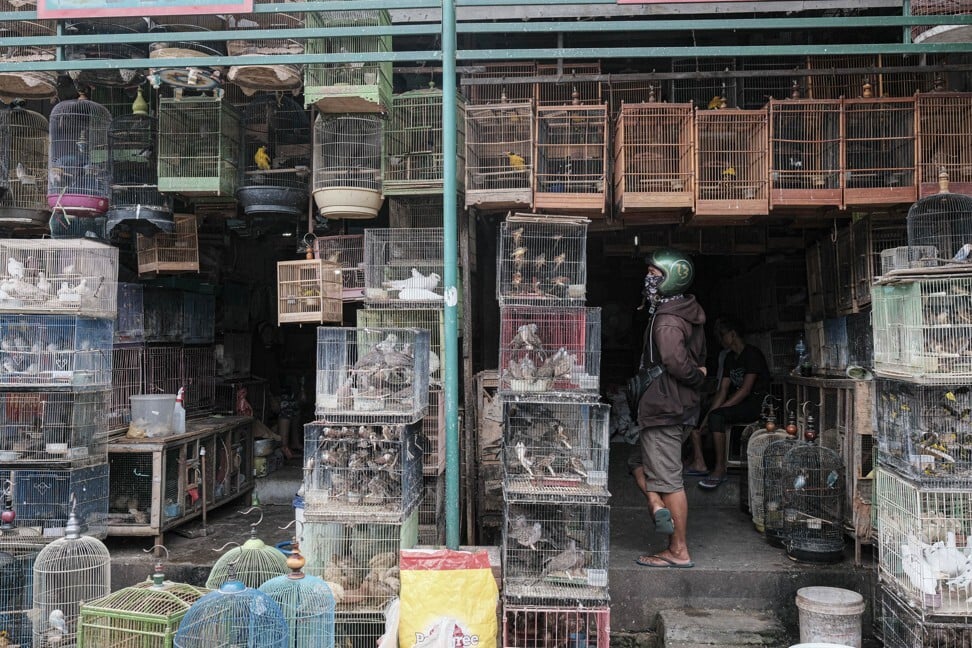
Wet markets selling wildlife – birds, monkeys, bats and more – go quiet in Indonesia amid coronavirus pandemic
- Across Indonesia, markets selling all manner of wildlife usually draw crowds of tourists and locals, but footfall has plunged as coronavirus infections rise
- Authorities have taken steps to curb the wild animal trade, and an activist says social distancing and fear of eating bush meat may be keeping customers away
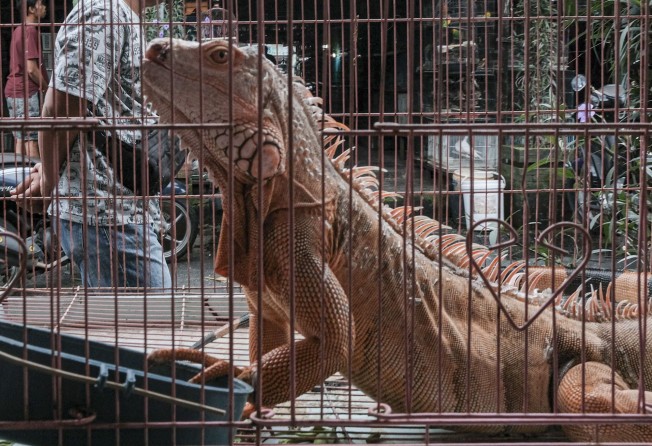
Once popular tourist destinations, wild animal markets in Indonesia have seen visitors staying away thanks to the coronavirus pandemic that has shone a spotlight on the trade and consumption of wildlife.
Organisations such as Change for Animal Foundation, Flight, Jakarta Animal Aid Network, and Animals Asia have urged the Indonesian government to ban all commercial trade in wildlife for human consumption – particularly birds and mammals – and to shut down all the markets to reduce the possibility of diseases being transmitted from animals to humans.
Their demands have not been met, but measures to reduce the spread of outbreaks and to slow the trade in wild animals have been rolled out.
Bali’s Satria Market, in the southern town of Denpasar, sells everything from bats and monkeys to exotic birds, snakes and fish. The market, which used to heave with domestic and foreign tourists on weekends, was deserted on a recent Saturday morning.

The market, which occupies a site of about half a hectare, has long been a target of critics for its large number of traders – encouraged by the fact that the local government promotes it as a visitor attraction.
Now, only a few traders are turning up, cleaning cages crammed into narrow, semi-open shops, with dark, dank interiors. A few scattered visitors wearing masks browse the stalls.
“I raise pigeons at home. So I want to buy some today,” says one visitor, Kadek Alit. “On weekends it’s usually crowded here, but now it’s very quiet.”
Bali’s economy is highly dependent on the tourism sector and has suffered heavy losses since the Sars-CoV-2 coronavirus outbreak began. More than 4,500 people had contracted Covid-19, the disease caused by the coronavirus, throughout Indonesia as of April 13, and there had been nearly 280 fatalities.
To help reduce the spread of the virus, in mid-March the Indonesian government suspended its visa-free policy for foreign nationals for one month. As a result, many hotels in Bali are now closed and are dismissing employees, while tourist attractions are closed or quiet.
“For some time now, there have been no foreign tourists coming to the market,” says Sri Wahyuni, a bird trader at Satria Market. She says the market is usually a favourite destination for both local and foreign visitors.
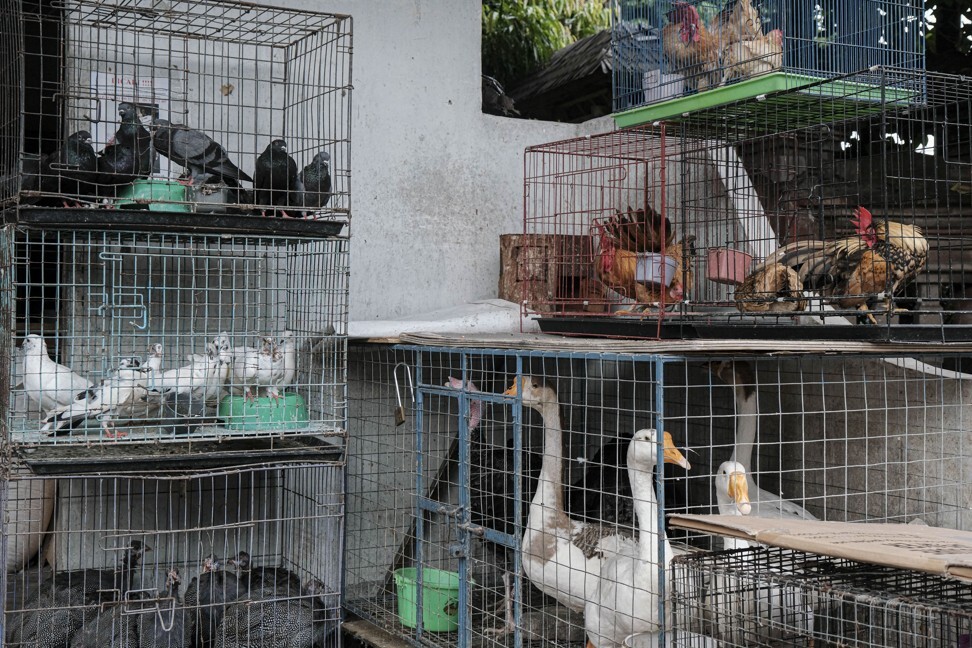
The market, however, has a dark side, and there have been illegal transactions of protected animals such as bobcats, otters, eagles and Bali mynahs.
Marison Guciano, a conservationist from Flight, says his team has been monitoring several animal markets in Indonesia and found that – although the trade in endangered species is usually carried out clandestinely – wild animals are sold openly.
Pangolins are prized for their body parts, which are valued in traditional medicine in countries including China and Vietnam – although the claims to their medicinal properties are not scientifically proven – and their meat is regarded as a delicacy. The Indonesian government has declared the pangolin, the world’s most widely traded wild animal, a protected species in an effort to curb large-scale trafficking.
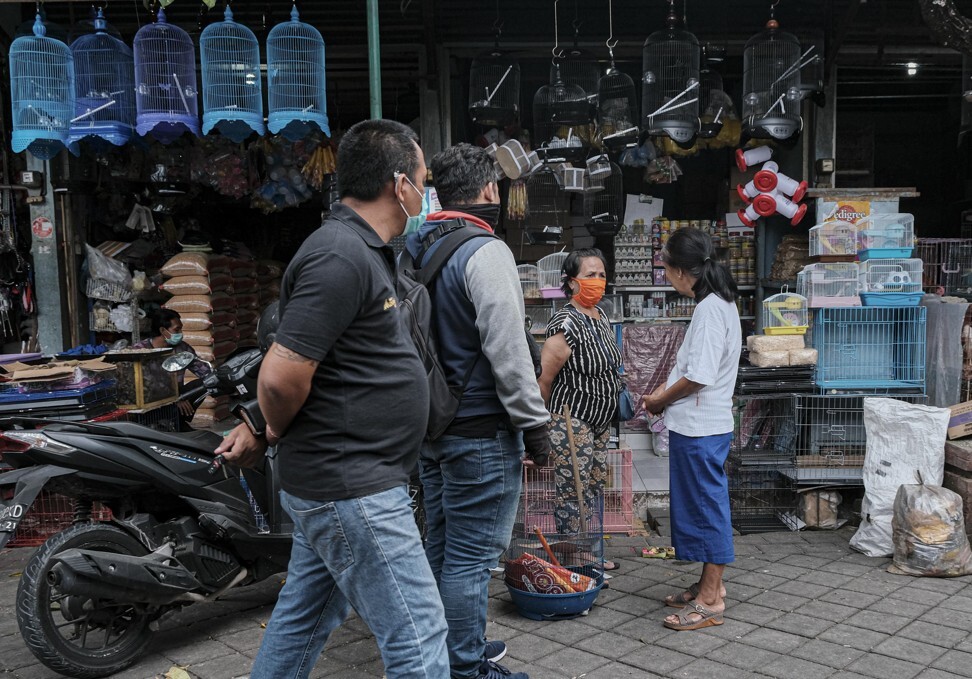
Almost all regions in Indonesia have markets similar to the wet market in Wuhan, China, that was linked to the first reported cluster of Covid-19 infections. At these markets, wild animals are sold and slaughtered every day, says Lola Webber, co-founder of the Change For Animals Foundation.
“Unhealthy conditions in these markets, together with the risk of contamination because so many animal species are confined and killed, are perfect breeding grounds for new and deadly diseases,” Webber said last month.
According to data from Jakarta-based Profauna Indonesia, another animal welfare organisation, about 60 per cent of creatures traded at pet/animal markets are rare and protected by law.
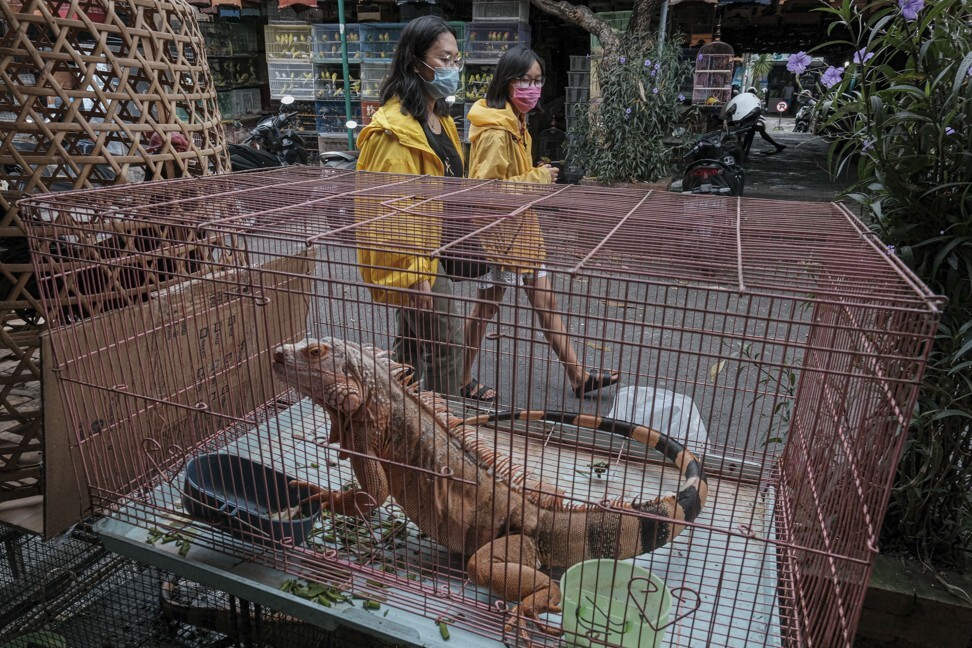
In February, China announced a nationwide ban on the trade, consumption and transport of wild animals. Although Indonesia has not followed its lead, some local authorities have taken dramatic steps to prevent the spread of the coronavirus – though these have yet to prove effective.
Hundreds of bats were anaesthetised and burned at a wet market in the city of Solo, Central Java, by the local government on March 14, reports said.
Operators of another animal market, Pasty in Yogyakarta city, are taking extra steps to improve hygiene.
“We clean the cages and the market environment more regularly, and spray disinfectant twice a week,” says market manager Woro Sudarini. As at the Satria market, a large number of wild animals are sold at Pasty, including bats, monkeys and birds.
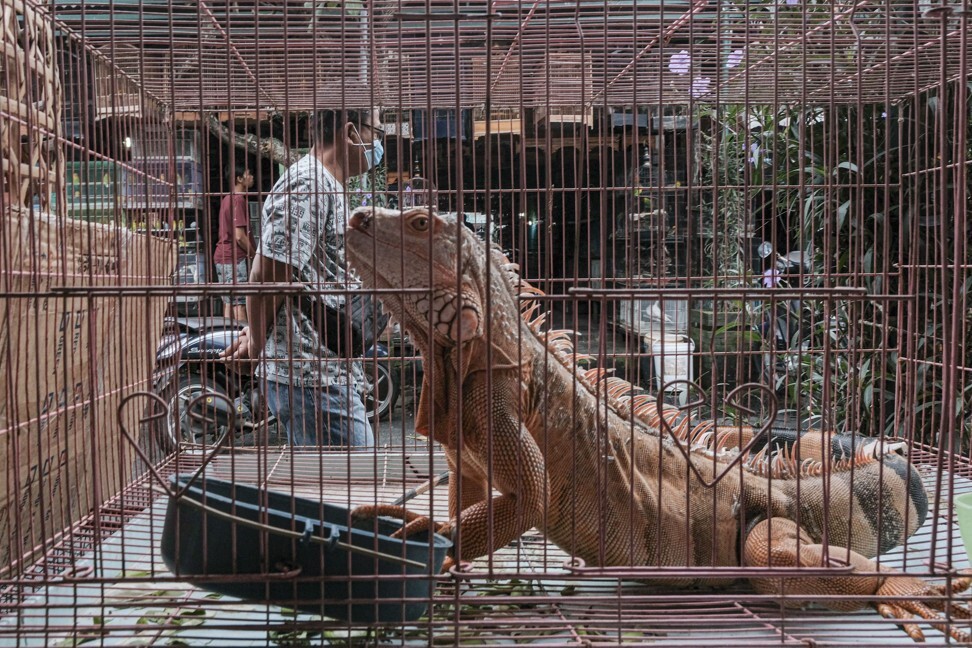
Managers at other markets say fewer visitors are being seen by the day as the government calls for the public to practise social distancing.
A wet market in the town of Tomohon, North Sulawesi, has also been taking steps since last month to prevent the spread of the virus. Tomohon Traditional Market, also known as Beriman Market, sells a variety of animals for consumption, including bats, snakes and dogs.
Animal welfare activists have long urged the government to close this market down, but have met with resistance from locals who customarily eat exotic meat and those who depend on the market for their income.
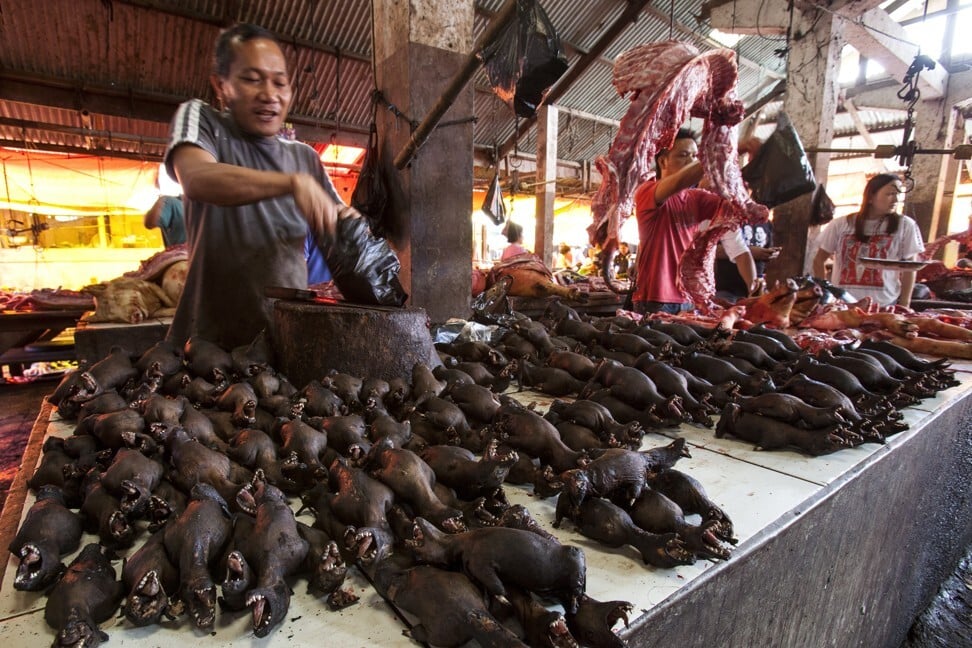
Local resident Frank Delano Manus, who is also programme director for the non-profit welfare organisation and shelter Animal Friends Manado, notes that although the market remains open, the local government has moved to scale back the trade in exotic animals.
Measures include encouraging vendors to switch to selling chicken and beef, rather than bat and dog meat; limiting opening hours from a full day to just half a day; daily spraying with disinfectant; and building surveillance posts on the province’s borders.
These guard posts are to prevent the entry of bat and snake meat from outside North Sulawesi. About 90 per cent of the bat, snake and dog meat sold at the Tomohon market has traditionally been imported from other parts of the country. Investigations conducted by the Animal Friends organisation in 2018 and 2019 found that an average of 7 tonnes of snake meat and 1.3 tonnes of bat meat were traded at the market every week.
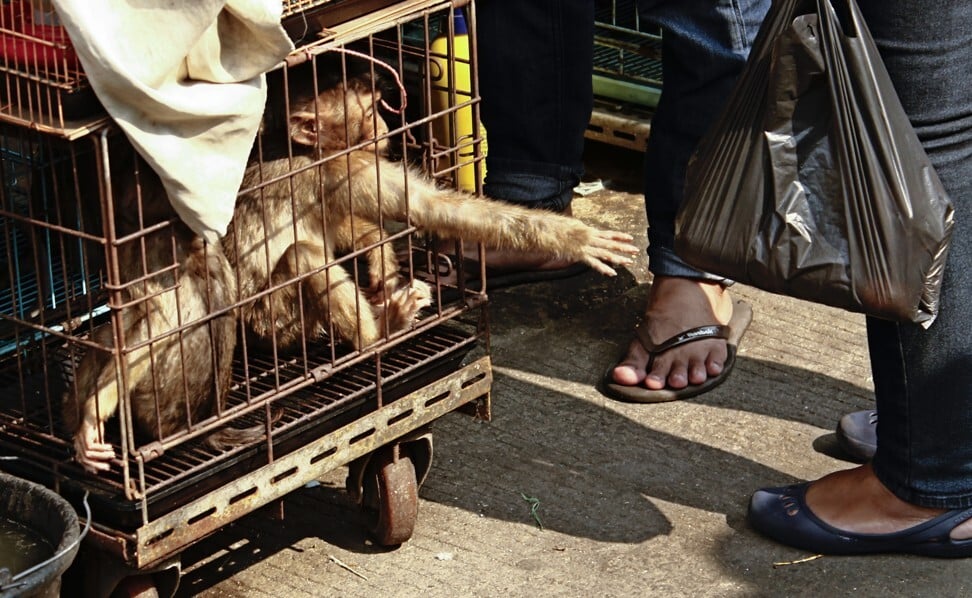
Manus says it is hoped that efforts the government is making will change people’s attitudes towards selling and consuming the meat of wild animals in Indonesia.
The latest reports indicate there has been a 30 per cent decline in sales of bat meat and that of other wild animals at the Tomohon market.
“It could be for two reasons. First, because of the social distancing policy. Second, because people are indeed afraid to consume bat meat,” says Manus.
Under Indonesian law covering the conservation of natural resources, anyone found guilty of smuggling protected animals faces up to five years in prison and a fine of up to 100 million rupiah (US$6,400) – a penalty conservationists consider too lenient.
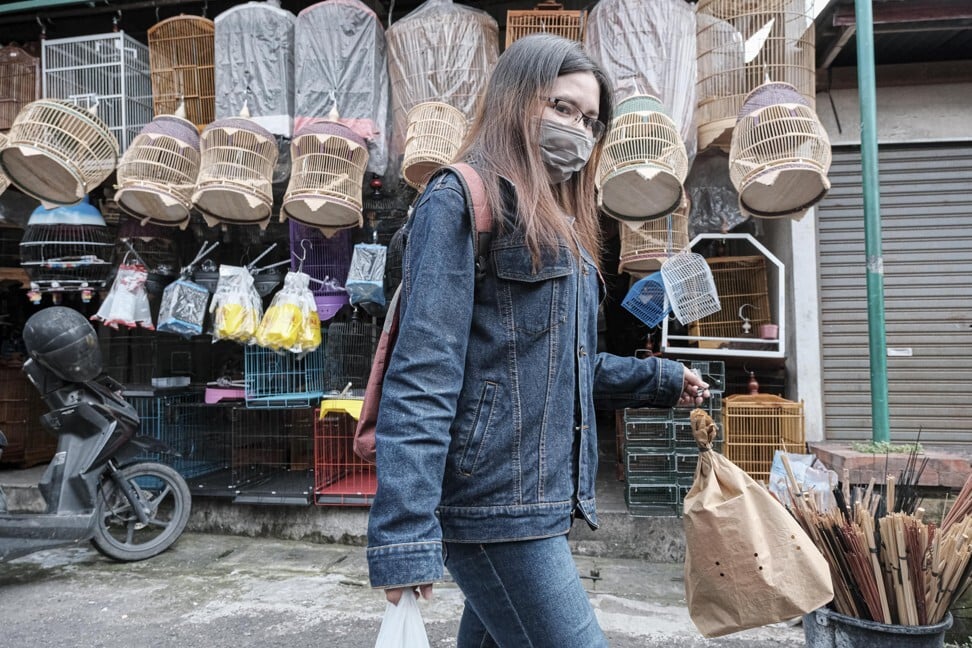
Flight’s Guciano says the government is wrong to promote wildlife markets as tourist attractions. He urges visitors not to buy wild animals either in markets or through brokers, once travel restrictions are lifted.
Indonesia is a country rich in biodiversity and home to a large number of native species. Guciano says that wildlife should be allowed to fulfil its function as part of the natural world’s ecological balance.
“This coronavirus outbreak is a reminder for all of us not to trade wild animals and instead let them live in their [natural] habitat,” he says.